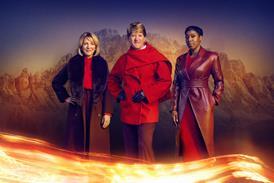Suppliers have a right to know much is being spent across genres.
To the consternation of fans and the Twitterati, the BBC this week cancelled Shooting Stars, the first high-profile casualty of DQF.
No doubt there will be more much-loved shows to follow, and it will be just as hard for fans to swallow more ‘needs-must’ justication: “In future there will be less space and cash for BBC2 comedy/entertainment, so sadly Shooting Stars won’t be returning.”
But how much will be spent on this type of output in the future, as opposed to say sitcoms, or shows promoting new comedy talent?
Fact is, we don’t know. For all the talk about transparency, one thing DQF hasn’t given us is a clear sense of where our money is being spent – or not being spent. We’ve seen the headline cuts of 20% across the board, but we have no idea how that breaks down when it comes to spend across or within genre.
Take history and science. As Broadcast reported last month, BBC4 is to be stripped of its history budget. There will also be a significant reduction in science programming.
Do we know how much that equates to, in licence-fee pounds? No, because the BBC won’t tell us.
Do we at least know what it previously spent on history or science on BBC4? No, it won’t tell us.
Do we know how many hours it ordered? Ditto.
What it will tell us is that BBC2 will start to commission more from those genres, but again do we know how much, or whether it will make up the shortfall? Guess what, the BBC won’t divulge that.
Maybe licence-fee payers should get answers to simple questions such as how much does the BBC spend on religion, or maybe that’s opening a can of worms – but shouldn’t suppliers be privy to that sort of information?
Take current affairs. The 20% cut means a reduction of around nine hours a year for BBC2 but, it is argued, that still means producing about 126 hours a year across all BBC current affairs output.
What remains unclear is how much the cut will affect long-running, ratings-banking series produced in-house, such as Crimewatch and Countryfile, and how much will be left for original content produced in-house or by indies?
If you’re a producer who doesn’t know how the 20% cuts will pan out in monetary terms as well as hours, how do you know where you should be spending your development money?
One BBC insider claims the corporation is still trying to work out programming spend because a number of complex calculations still need to be done, including the impact of the W1 move, inflation, pan-UK reorganisation and how much revenue can be driven from co-pros, for example. After years of PQF and DQF, let’s hope some clarity is around the corner.
In the meantime, will it be down to Foster’s to save the dove from above?
Lisa Campbell is editor of Broadcast


























No comments yet